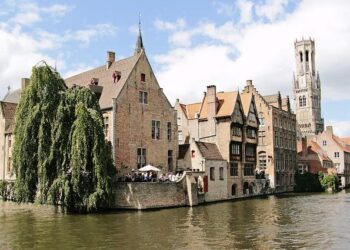Promoting Nutritious and Sustainable Diets in Greenland and the Faroe Islands: A New Nordic Perspective
As the world grapples with escalating environmental challenges and a surge in health issues related to lifestyle choices, Nordic nations are intensifying their commitment to fostering healthy, sustainable eating habits. This initiative, driven by collaboration among Nordic countries, aims to address the unique dietary challenges faced by Greenland and the Faroe Islands, where customary eating patterns are undergoing meaningful transformations. Confronted with the dual pressures of climate change and globalization, this partnership seeks to blend their rich culinary traditions with modern nutritional guidelines, paving a path toward improved health for local communities. Supported by residents, healthcare professionals, and policymakers alike, this initiative aspires not only to enhance nutritional outcomes but also to preserve the vibrant cultural heritage of these Arctic regions. With its extensive approach towards health and sustainability, it serves as a model for other areas facing similar challenges.
Enhancing Local Food Systems for Nutritional Resilience in Greenland and the Faroe Islands
The push for stronger local food systems is gaining momentum throughout Greenland and the Faroe Islands as communities recognize the importance of sustainable diets rooted in regional resources. The emphasis is on preserving traditional food practices while promoting agricultural methods that align with each region’s distinct environmental conditions.By prioritizing local production techniques, these communities aim not only to combat food insecurity but also reduce carbon emissions while enhancing overall nutritional well-being. Key initiatives include:
- Support for Local Fisheries: Promoting sustainable fishing practices that protect marine ecosystems while ensuring access to fresh seafood.
- Promotion of Community Gardens: Initiatives aimed at growing vegetables and herbs within urban areas that connect residents with nature while improving their diets.
- Culinary Education on Traditional Foods: Workshops designed to teach sustainable cooking skills using locally sourced ingredients that honor culinary heritage.
A collaborative effort involving local governments, NGOs, and community members is crucial for strengthening these initiatives. Recent studies have highlighted how culturally significant foods can positively impact community well-being by integrating traditional foods into contemporary dietary practices—fostering greater nutritional resilience. Local stakeholders are encouraged to actively participate in movements advocating food sovereignty which empowers communities over their dietary choices. Various ongoing projects include:
| Name of Project | Description | Status Update |
|---|---|---|
| The Greenlandic Garden Initiative | A community-supported agriculture project focused on increasing vegetable production. | Ongoing |
| The Faroe Islands Fishery Management Program |
Integrating Traditional Practices with Modern Nutrition Science for Sustainable Eating Habits
The ongoing pursuit of healthier lifestyles within Greenlandic and Faroese societies has underscored an essential strategy: integrating time-honored practices with contemporary nutrition science.
Indigenous eating habits deeply rooted within local ecosystems offer invaluable insights into nutrient-rich foods often overlooked today.
By embracing these ancient methods,
communities can resist processed alternatives flooding markets,
strengthening ties with cultural roots while simultaneously boosting local economies.
Collaborations between nutritionists
and indigenous elders ensure educational programs encompass both nutritional knowledge
and cultural significance,
thereby enriching traditional diets’ overall value.
This focus on sustainable eating is further supported through initiatives showcasing seasonal produce sourced locally.
Key elements include:
- Pushing consumption of wild game alongside seasonal fish & vegetables;
- Culinary education emphasizing preservation techniques like fermentation & smoking;
- Sponsoring workshops highlighting ethical hunting & gathering benefits;
Together,these efforts empower communities to optimize food systems while minimizing ecological impact. To illustrate how integrated approaches yield positive results,the following table outlines key nutritional advantages associated with commonly consumed regional foods:
| Nutrient-Rich Food Item | Main Nutritional Advantages | Collaborative Efforts in Policy Development Supporting Healthy Eating Programs |
|---|
| Initiative Name | Impact Achieved | |
|---|---|---|















